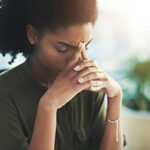
How to Manage Too Many Chargebacks
May 18, 2025
On The MATCH List? Read This First
August 24, 2025Am I Out of Business Now That I’m On The MATCH List?
Panicking now that you have discovered that you are on the MATCH List? You are not alone. Many businesses, even when it is not their fault, can find themselves on the MATCH List with their business and livelihood now in danger. Luckily, if you are on the MATCH List, it doesn’t necessarily mean you need to shut down your business. The five-year waiting period penalty is nearly impossible for small businesses to survive through, but there are other steps you can take. Keep reading to learn more about the MATCH List and how early removal can get you back to business as usual.
What is the MATCH List?
The more you know about the MATCH List, the better prepared you will be to keep your business open and avoid it in the future.
The Mastercard Alert to Control High-risk Merchants (MATCH) allows an acquiring partner to look at whether another acquiring partner has terminated a merchant in the past and the reason for that termination to aid in an onboarding decision. This will provide acquirers with the opportunity to develop and review enhanced or incremental risk information before entering into a merchant agreement. The API also provides the facility for an acquiring partner to add a merchant termination event to the system. Furthermore, the API enables an acquiring partner to determine when other acquiring partners have inquired about a specific merchant.
MATCH List Reason Codes
There are several reasons why your business may have been placed on the MATCH List. Often, it is through no fault of your own, such as identity theft or fraud, and at other times, it can be due to simple mistakes, including excessive chargebacks or PCI noncompliance.
Here are the MATCH List Reason Codes:
- Account Data Compromise: An occurrence that results, directly or indirectly, in the unauthorized access to or disclosure of Account data.
- Common Point of Purchase (CPP): Account data is stolen at the Merchant and then used for fraudulent purchases at other Merchant locations.
- Laundering: The Merchant was engaged in laundering activity. Laundering means that a Merchant presented to its Acquirer Transaction records that were not valid Transactions for sales of goods or services between that Merchant and a bona fide Cardholder.
- Excessive Chargebacks: With respect to a Merchant reported by a Mastercard Acquirer, the number of Mastercard chargebacks in any single month exceeded 1% of the number of Mastercard sales Transactions in that month, and those chargebacks totaled USD 5,000 or more.
- With respect to a merchant reported by an American Express acquirer (ICA numbers 102 through 125), the merchant exceeded the chargeback thresholds of American Express, as determined by American Express.
- Excessive Fraud: The Merchant effected fraudulent Transactions of any type (counterfeit or otherwise) meeting or exceeding the following minimum reporting Standard: the Merchant’s fraud-to-sales dollar volume ratio was 8% or greater in a calendar month, and the Merchant effected 10 or more fraudulent Transactions totaling USD 5,000 or more in that calendar month.
- Fraud Conviction: There was a criminal fraud conviction of a principal owner or partner of the Merchant.
- Mastercard Questionable Merchant Audit Program: The Merchant was determined to be a Questionable Merchant as per the criteria set forth in the Mastercard Questionable Merchant Audit Program (refer to section 8.4 of this manual).
- Bankruptcy/Liquidation/Insolvency: The Merchant was unable or is likely to become unable to discharge its financial obligations.
- Violation of Standards: With respect to a Merchant reported by a Mastercard Acquirer, the Merchant was in violation of one or more Standards that describe procedures to be employed by the Merchant in Transactions in which Cards are used, including, by way of example and not Cardholders, minimum/maximum Transaction amount restrictions, and prohibited Transactions set forth in Chapter 5 of the Mastercard Rules manual.
- With respect to a merchant reported by an American Express acquirer (ICA numbers 102 through 125), the merchant was in violation of one or more American Express bylaws, rules, operating regulations, and policies that set forth procedures to be employed by the merchant in transactions in which American Express cards are used.
- Merchant Collusion: The Merchant participated in fraudulent collusive activity.
- PCI Data Security Standard Noncompliance: The Merchant failed to comply with Payment Card Industry (PCI) Data Security Standard requirements.
- Illegal Transactions: The Merchant was engaged in illegal Transactions.
- Identity Theft: The Acquirer has reason to believe that the identity of the listed Merchant or its principal owner(s) was unlawfully assumed for the purpose of unlawfully entering into a Merchant Agreement.
Does This Mean I Am Out of Business?
Luckily, being on the MATCH List doesn’t automatically mean you need to shut down your business. You can become a high-risk merchant, become cash-only, or seek early removal through legal help.
Becoming a High-Risk Merchant
According to NerdWallet, a high-risk merchant account is required if a business with a greater risk of fraud or chargebacks — or with certain other characteristics — wants to accept credit card payments.
When a customer pays by card, the funds are first held in a merchant account before being transferred to the business’s bank account.
Payment processors often offer built-in merchant accounts; however, many payment processing companies won’t work with businesses they consider “high-risk.”
Types of High-Risk Merchants
- Adult products or services
- Bail bonds
- Tobacco & tobacco accessories
- Dating services
- Diet and weight loss programs
- Firearms and firearms accessories
- Free trials
- Cannabis and cannabis accessories
- Mail-order transactions
- Multilevel marketing
- Some non-profits
- Digital marketing services
Downsides of Becoming a High-Risk Merchant
- Long contracts. High-risk businesses are usually required to sign an extended contract to ensure they will be able to pay the bank. If you sign this and subsequently get removed from the MATCH List, you may be liable for high fees.
- Higher fees. Speaking of high fees, being a high-risk merchant is pricey, because companies will charge a higher fee for every transaction that is processed.
- Difficult application process. Low-risk merchants can typically be approved for a merchant account within a day or so. High-risk merchants will take significantly longer and require more extensive documentation.
- Cash requirements. In order to feel comfortable working with you, many companies may require that you have a certain amount of cash that they can hold onto as a hedge.
What Else Can I Do to Save My Business?
If becoming a high-risk merchant doesn’t seem worth it for you, you can turn your business into a cash-only business for the time being.
This can be incredibly difficult for most businesses to achieve. Most, if not all, people want to have a paper trail for their expenses, and according to Forbes, 84% of people would rather use a credit or debit card over using cash.
Get off the MATCH List Early
One way to get this all behind you is to seek legal help and get off the MATCH List early, without having to become a cash-only business or commit to high fees and lengthy contracts as a high-risk merchant.
Get Off the MATCH List with TFM Law
If you have found yourself on the Match List, you have options. Don’t wait the five-year period, get back to business ASAP.
The Law Offices of Theodore Monroe focuses on litigation and counseling in the areas of payments, credit card processing, e-commerce, direct response marketing, and Federal Trade Commission enforcement.
Last year, the firm removed 100% of the people who came to us from the MATCH list.
Theodore F. Monroe, Founder of TFM Law, has successfully:
- Represented merchants recovering funds from processors
- Structured processing relationships to comply with Card Brand requirements
- Drafted and negotiated contracts involving payment facilitators and ISOs
- Represented continuity merchants in compliance and litigation issues
- Fought for numerous companies in suits brought by the Federal Trade Commission and obtained excellent results for firms in the digital products, loan modification, government grant, and nutraceuticals industries
Before opening his firm, Mr. Monroe practiced law with Crosby, Heafey, Roach & May (now Reed Smith LLP) and Lewis, D’Amato, Brisbois & Bisgaard (now Lewis, Brisbois, Bisgaard & Smith), where he defended numerous accounting and law firms in professional liability actions and insurance carriers in bad faith actions.
Before becoming a lawyer, Mr. Monroe worked as a forensic accountant at Coopers & Lybrand, which provided him with a unique background in forensic accounting and financial analysis among litigators in Los Angeles.
Mr. Monroe studied at Duke University Law School, achieved a BS with Honors in Accounting from the University of Kentucky, and is a member of the California State Bar and the Kentucky State Bar.
For more information, visit us at HowToGetOffMATCH.com!




